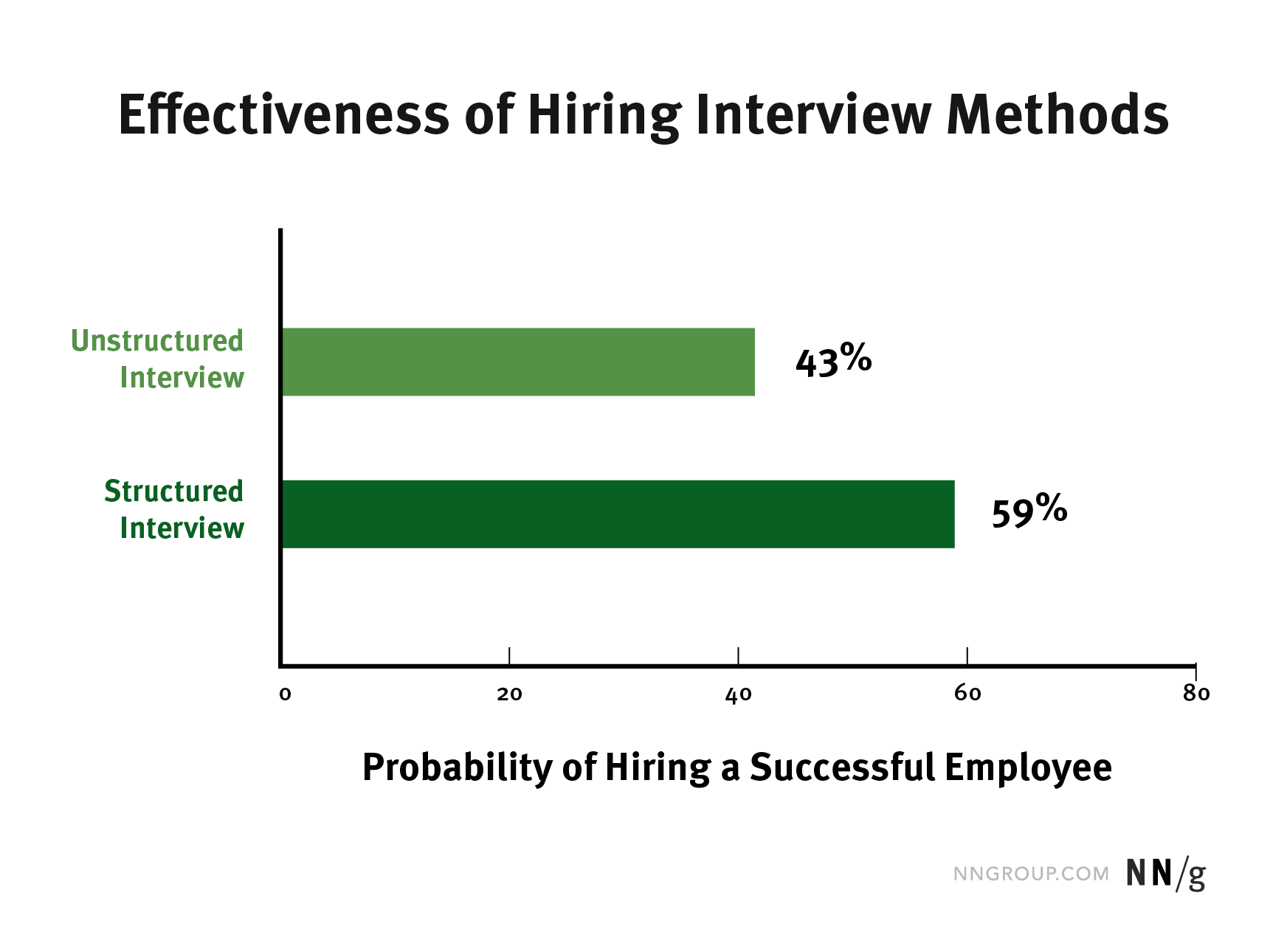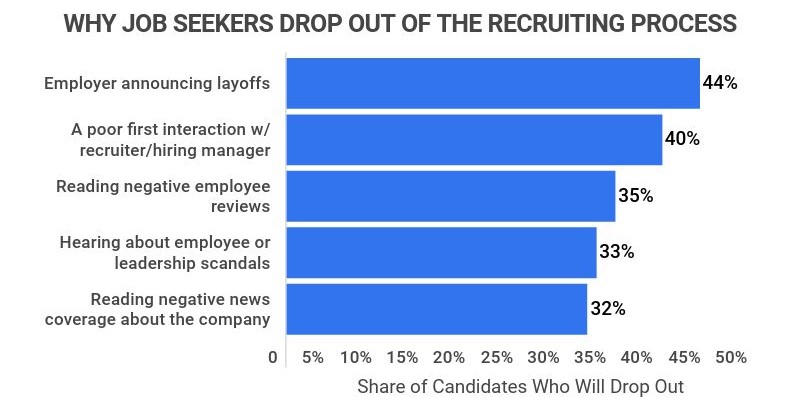During the interview, it’s all about making everyone feel as comfortable and prepared as possible. You’ve done the prospect’s initial assessment. It’s time to gauge how the candidate might fit in with the rest of your organization.
Interviews are typically stressful for both sides. But you can bring out the best in everyone by preparing in advance, helping out both the candidate and interviewer, and approaching the interview as an opportunity to sell your company.
Read on to learn about a list of hacks to help both your organization and candidates do better during interviews.
Interview Hack #1: Casting
While each person performs differently in an interview, you can try to match the right interviewer to the occasion to improve the candidate experience.
Ask yourself:
Create a spreadsheet of each hiring manager in your team, with columns for their unique interests, skills, background, and interview style.
When making the spreadsheet, look for backups — or in other words, cast understudies. When you only have one new grad available to interview, for example, you might delay time to hire when you could have had another new grad attend the interview instead.
Interview Hack #2: Sales Scripts
Your web copy and recruiting team should be on the same page, not confusing candidates with different information. By having your recruiters work from a script, you can ensure the information they provide to candidates is in line with the rest of your content.
A “script” for your interviewer should make clear:
Although each team member may only play a small role in improving the candidate experience, having access to the whole interview survival guide helps them understand where they fit into the overall experience. It also lets them fulfill their role with more insight, reliability, and specificity.
This planning leads to a well-structured interview experience, which research shows correlates with better candidate selection.

The scripts should also contain specific interview templates that include:
Getting the story right consistently is a crucial part of signaling to the candidates that your company is a well-oiled machine where they have the space and support to do the best work of their lives.
Interview Hack #3: Minimize Stress
Nearly everyone in a job interview is going to be stressed out. That includes the 93% of candidates who report being nervous for an interview, but also your hiring managers, who want to ask the right questions and make the right hiring decision.
An important way to improve the candidate experience is to help both parties relax and put their best foot forward in the interview.
In the simplest terms, your job as a recruiter is to make sure meetings go well.
Unless the role you’re hiring for really needs someone to be highly creative under a ton of stress, there’s no reason you need to test for that in the interview.
Although many factors improve the first interview, selling the opportunity to the candidate will address many of them.
Give everyone involved the information they need to feel confident and prepared. That includes information:
To the candidate:
To the interviewer:
Don’t underestimate the importance of sharing a small piece of information with a candidate, like who they’ll interview with. Research shows that 64% of candidates research their interviewer when they have access to that information.

Interview Hack #4: Rehearsal
Very few companies actually rehearse or evaluate what happens in interviews since they’re traditionally seen as private or very changeable. If you believe an interview’s outcome depends on the two people talking or the circumstances of the day, why would you need to practice?
Rehearsing interviews can help relax less practiced recruiters, and fresh eyes can identify areas for improvement. In addition to familiarizing recruiters with the questions they’ll ask, help them work on their body language, voice, word choice, and etiquette.
During rehearsals, you can also shine a spotlight on previous interviews to improve the candidate experience. Record your best interviewers and share the recordings in each meeting.
Assess them with the group and propose questions like:
You can even help key hiring personnel by setting up mock scenarios. Like with any skill, not everyone will naturally excel in the role, so everyone can use constructive feedback.
Practicing the process lets you avoid mixed messages during the interview. Even small things like wearing a suit after playing up the casual work environment of your organization can leave candidates a bit confused.
Research published in the Human Resource Management Journal shows that mixed messages during the interview process decrease the employer’s attractiveness to candidates.
Interview Hack #7: Sell First
The interview process is a two-way street. The best candidates will vet you just as much as you vet them. You can improve the candidate experience by assuming you have a top candidate before you, and it’s your job to win them over.
That means selling the company, job, environment, and benefits before you start firing questions at them.
This shift in thinking can have a significant impact on your hiring. For instance, it takes some pressure off the candidates and lets them feel more comfortable and perform better. It also reduces your chances of having a top candidate leave the interview process too early.
In fact, 40% of applicants report leaving the recruitment process due to a poor first interaction with a hiring manager.
Although many factors improve the first interview, selling the opportunity to the candidate will address many of them.
Instruct your interviewers to focus on selling first, and make this an explicit step in the interview templates you create. Find your strongest talking points from:
The interviewer doesn’t have to mention every single advantage of joining the company in one hard sell. Instead, write out questions they should ask to determine what each candidate is most interested in and motivated by. Then, write out a snippet that sells the company. Record and practice it with your interviewers to help make it stick.

Final Thoughts: Improve the Candidate Experience During Interviews
The interview stage is the first interactive stage of the candidate experience. Before the interview, you present information to candidates, and they do the same. You take turns learning about each other and determining if this is a good fit.
In the interview, you see how this comes together in real-time. You want your interviewers prepared with a solid script to ask the right questions without wasting time.
You can prepare for this with practice runs and trying out different interviewers to see who connects best with your prospective candidates. Give feedback to help interviewers get better and remember to sell your company, not just confirm information you already know from candidates’ resumes.
You can improve the candidate experience with these small actionable steps.
JobScore understands how every hiring stage leads you to choose the right candidate. Start making better hiring decisions with its interview templates, rating criteria, and feedback dashboard today.